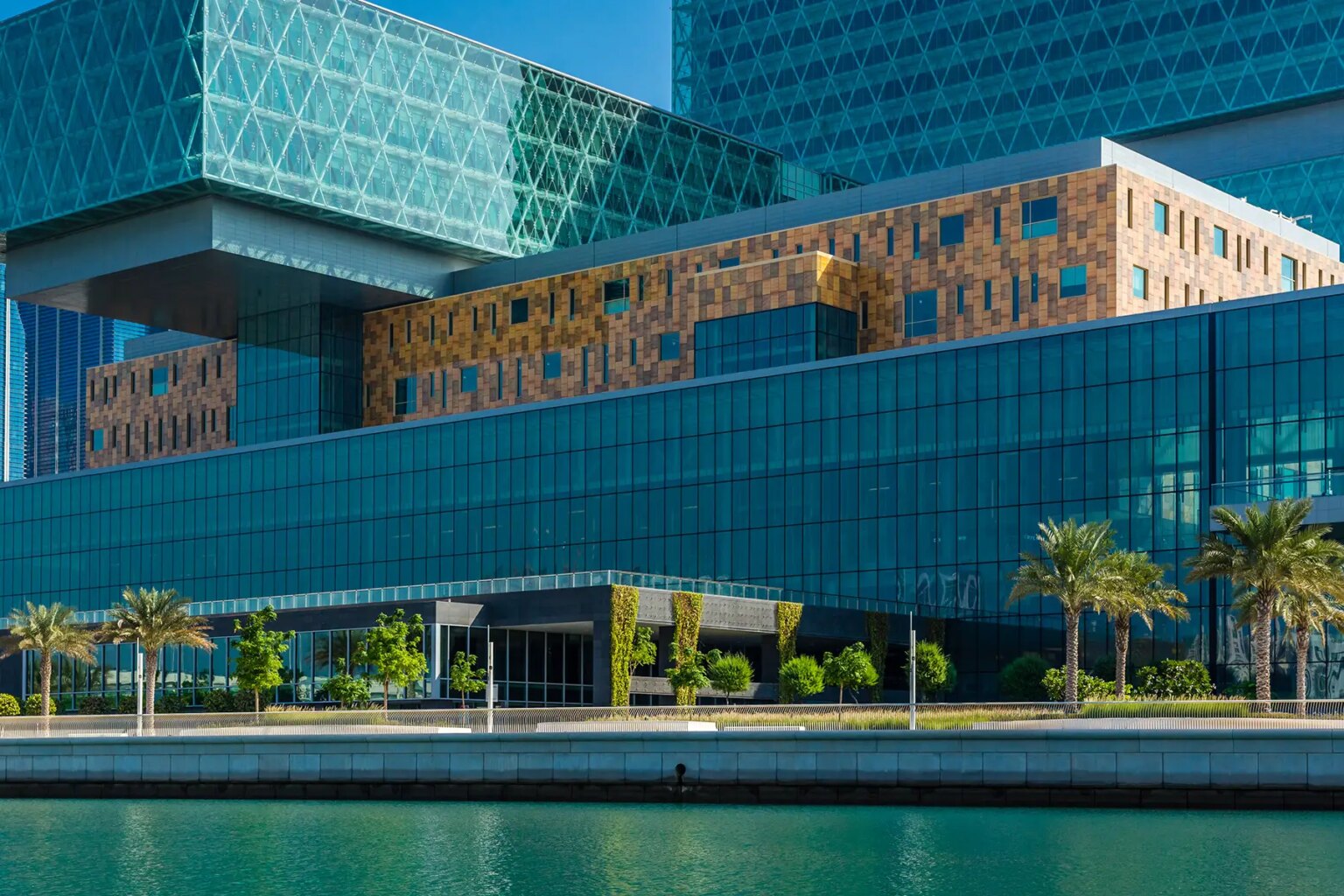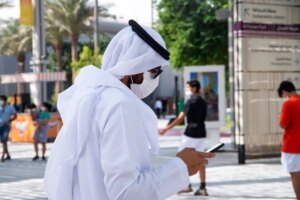The Emirati healthcare system is a mix of both public and private sectors. While UAE nationals can get free universal healthcare in Abu Dhabi and Dubai, foreign expats must take out private insurance to cover their medical expenses. And even then, ‘standard’ treatments might not be as common as you think.
Let’s dive in:
- How does healthcare in the UAE work?
- How much is healthcare in the UAE?
- How can expats register for healthcare in the UAE?
- Private healthcare in the UAE
- Healthcare facilities in the UAE
- Healthcare professionals
- Specialized healthcare
- COVID-19 in the UAE
- What to do in an emergency
- How to make a healthcare complaint
- Useful resources
Orient Insurance
Orient Insurance provides a range of insurance products, including medical coverage, for internationals in the UAE. With over 40 years of experience in the country’s insurance market, they offer policies for your health, vehicle, home, and much more. When moving to the UAE, trust Orient Insurance to protect what matters.
How does healthcare in the UAE work?
The Emirati healthcare system
The United Arab Emirates (UAE – الإمارات العربية المتحدة, al’iimarat alearabiat almutahida) has a top-quality healthcare system that is the best in the Middle East (2022). It’s recognized worldwide for providing quality medical aid in the fields of vision and eye care, dental care, cancer treatment, and cosmetic surgery.

The UAE is a federation of seven emirates; Abu Dhabi, Ajman, Dubai, Fujairah, Ras Al Khaimah, Sharjah, and Umm al-Quwain. The government has approved legislation that all emirates must offer universal healthcare to its citizens. However, currently, only Dubai and Abu Dhabi offer this.
The Ministry of Health and Prevention (MoHaP – وزارة الصحة ووقاية المجتمع, wizarat alsihat wawiqayat almujtamae) oversees the national healthcare regulations. They also ensure the accreditation of public and private hospitals.
The emirates of Abu Dhabi, Dubai, and Sharjah have their own regional healthcare authorities to regulate the public and private medical sectors:
- The Abu Dhabi Department of Health (DoH – دائرة الصحة, dayirat alsiha)
- The Dubai Health Authority (DHA – هيئة الصحة بدبي, hayyat alsihat bidubay)
- The Sharjah Health Authority (SHA – هيئة الشارقة الصحية, hayyat alshaariqat alsihiya)
The remaining four emirates rely on the MoHaP to act as their regulator.
According to the nonprofit think tank Foundation for Research on Equal Opportunity (FREOPP), the Emirati healthcare system receives a moderate score (2020). This is in part due to patients’ lack and inability to choose, and poor access and contribution to the field of medical science and technology.
Who can access healthcare in the UAE?
All UAE nationals must take out mandatory health insurance to access free or subsidized public healthcare.
Expats and foreign residents – including those from the Gulf Cooperation Council (GCC – مجلس التعاون لدول الخليج العربية, majlis altaeawun lidual alkhalij alearabia) – must get private health insurance to cover their medical bills. Failing to do so can result in a fine of up to AED 500 ($136) per month.
How much is healthcare in the UAE?
In 2020, the UAE reportedly spend AED 72.4 billion ($19.7 billion) on healthcare (or around AED 7,317 ($1,992) per person). This is above the 2022 GCC average of $17.4 billion, as well as the 2021 European Union (EU) average of $16.1 billion.
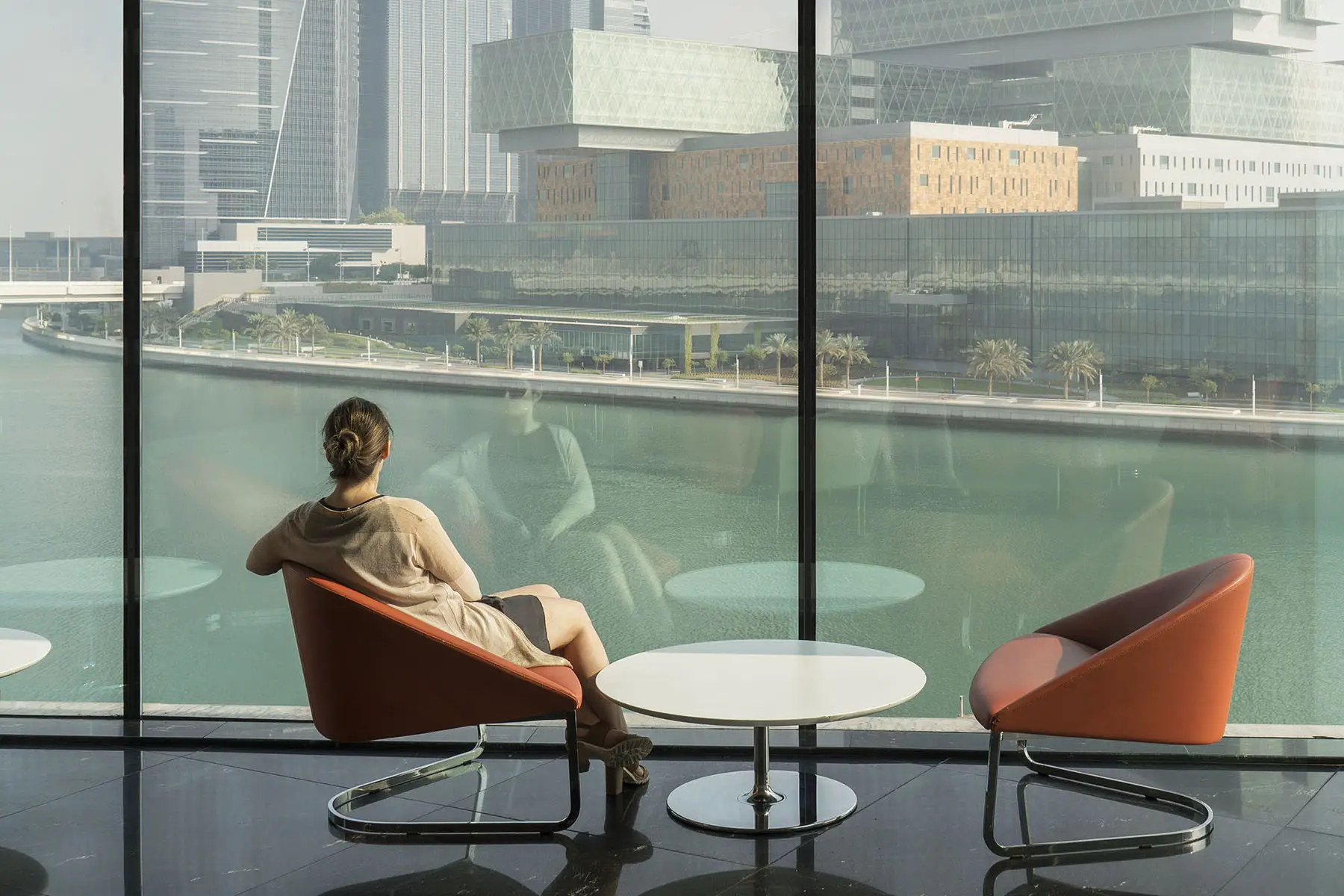
The healthcare system is paid partly by taxes, and partly by the mandatory health insurance scheme. Any additional cost of treatments will depend on which emirate you are in. For example, UAE citizens have access to free healthcare in Abu Dhabi and Dubai. In other areas, you may be expected to pay for parts of or the entire procedure.
Health insurance in the UAE
UAE nationals can sign up for public health insurance, such as:
- Thiqa – for people in Abu Dhabi
- ENAYA – for people in Dubai
- Sharjah Health Insurance – for people in Sharjah
Expats will have to take out a policy with one of the many private insurance companies operating in the country. If you are in the UAE for work, your employer or sponsor must take out insurance for you (and sometimes your family). However, if you are not employed or you’re planning to travel through the MENA region, you can also choose an international health insurance provider.
Depending on the coverage plan, private health insurance usually costs AED 5,500-10,000 per year for individual policies, and AED 10,000-18,000 per year for family plans. Top insurance companies with expat-friendly policies include:
APRIL International
Looking for expat-friendly health insurance in the UAE? APRIL International has a long history of providing health coverage tailored to the unique needs of the expat lifestyle, ensuring peace of mind for you and your family. Whether you’re relocating to the UAE or simply staying short-term, APRIL International has the right policy for you.
How can expats register for healthcare in the UAE?
When you have private insurance, you can visit both public and private healthcare facilities. However, to schedule an appointment in a public hospital (مستشفى, mustashfaa), you’ll need a health card (بطاقة صحية, bitaqat sihiya). You can apply for one online or in-person at a typing center (مركز الطباعة, markaz altibaea).
You’ll need to provide a valid Emirates ID. If you don’t have one (yet), you can also apply for the health card by uploading your valid passport with a valid entry visa or residence card.
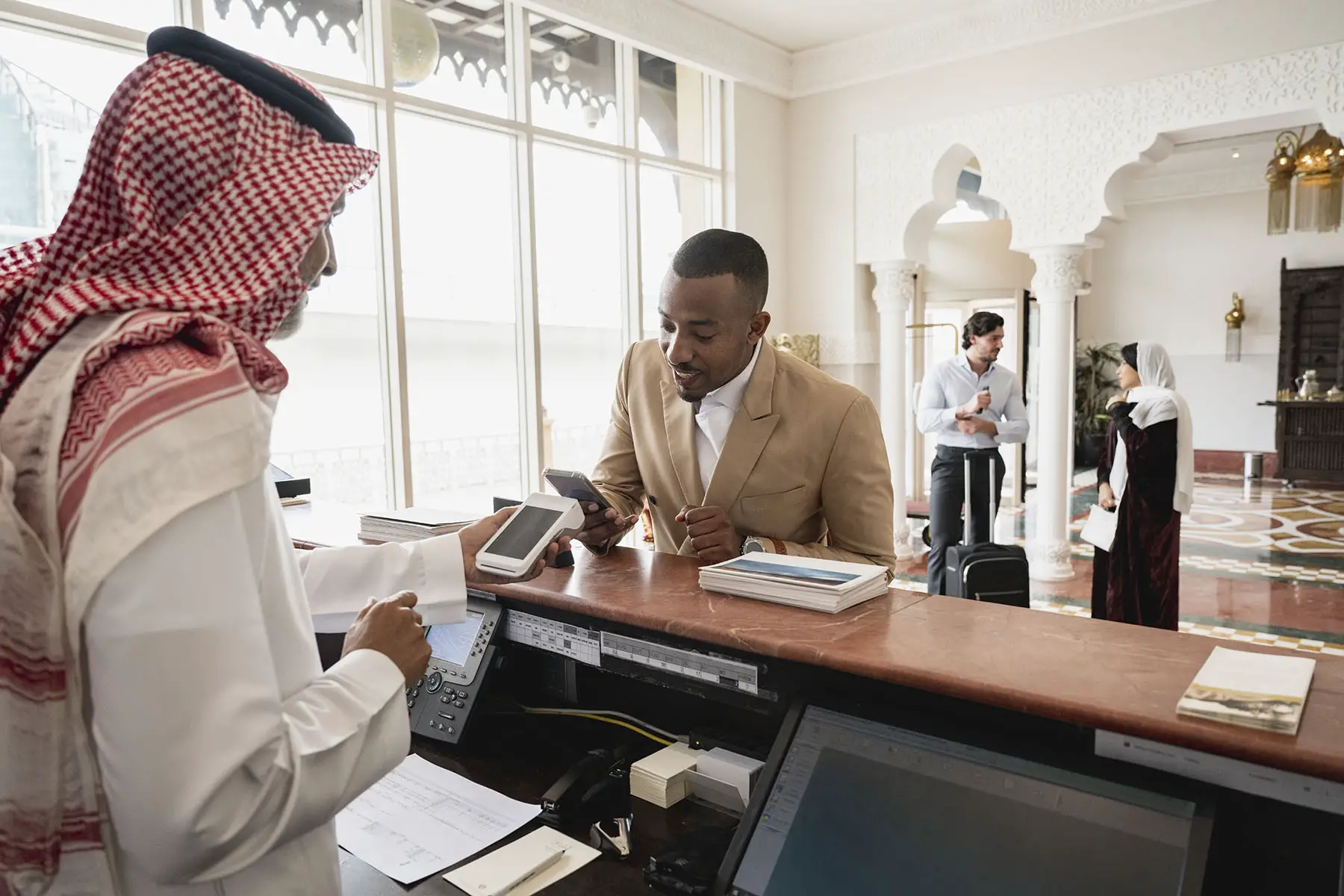
You must then fill out the required details, including:
- Your local health center information
- Full name in English and Arabic
- Date of birth
- Nationality
- Mobile number and email address
The fee depends on your nationality. GCC nationals are charged AED 35,000 and non-GCC nationals pay AED 115,000. Once your card is approved, you can download it from the Health Card System and print it out. Alternatively, because it is linked to your Emirates ID, you can use your ID card to access health treatments as well.
The health card is valid for five years if you are a GCC national, and one year if you are a non-GCC national.
Private healthcare in the UAE
There are many private healthcare centers and hospitals available in the UAE. In Dubai alone, there are almost 4,500 medical facilities. Although private treatment is more expensive, you’re more likely to have access to English-speaking medical staff.
The country has three healthcare cities that cater to all healthcare needs, including that of medical tourists:
Healthcare facilities in the UAE
Health centers and clinics
For non-emergency-related medical issues, your first point of contact – including getting prescription medication (روشتة, rushta) – is a family doctor (طبيب الأسرة, tabib al’usra). These are based in your local Primary Health Care Center (PHCSS – يتكون مركز الرعاية الصحية الأولية, yatakawan markaz alrieayat alsihiyat al’awalia) from the Emirate Health Services (EHS – الإمارات للخدمات الصحية, al’iimarat lilkhadamat alsihiya).
You can find your local PHCSS on the website of the EHS or that of one of the local authorities:
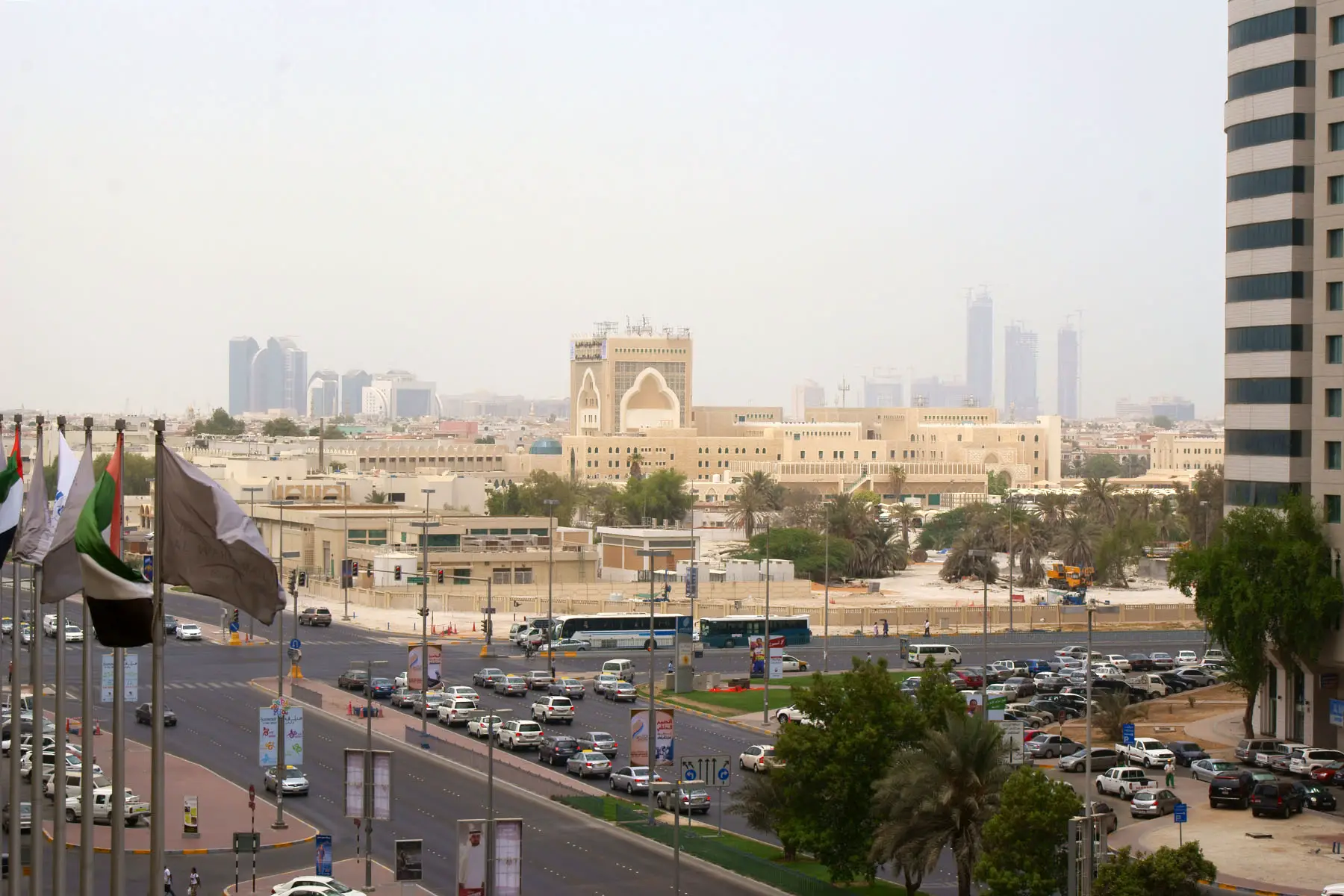
While some clinics are open 24/7, others have regular opening hours. These are typically open from 07:30-22:00 on Monday to Thursday and 07:30-14:00 on Friday. Weekend hours differ greatly; some centers are open according to the weekday schedule, some have reduced hours, and some are closed.
Keep in mind that public holidays such as Eid and Ramadan can also affect working hours.
Pharmacies in the UAE
Prescription meds (وصفة طبية, wasfat tibiya) can be picked up from a local pharmacy (صيدلية, saydalia), which is usually located inside or close to the health center or hospital. Similarly to the clinics, some pharmacies are open 24/7, while others have regular opening hours.
Although pharmacies stock a wide range of products, some standard prescription drugs might not be available. Products like certain anti-depressants and psychotropic substances are controlled in the UAE and importing them from other countries can result in severe consequences. You can find a list of controlled medicines on the government’s website.
To find your nearest pharmacy, you can use any search engine or check this list of pharmacies in:
Hospitals in UAE
If you are in an emergency (طارئ, tari) and need an ambulance (سياره اسعاف, sayaaruh aseaf), you can call the emergency number 998. If the emergency is non-life threatening, you can also go to one of the many hospitals in the country.
In 2020, there were 53 public and 109 private hospitals in the UAE. This number includes specialized facilities, such as women’s and children’s hospitals.
Depending on your level of insurance, you can expect to stay in a private room or a shared room with four or five beds. Hospital patients usually have access to WiFi, cable TV, and in-room food service.
Healthcare professionals
Dentists in the UAE
Some dentists (طبيب أسنان, tabib ‘asnan) operate from the PHCSS, while others have their own private clinics. In 2020, there were over 6,800 dentists working in the country. Because of this, their prices are competitive. Dental care is not always included in your health insurance policy, so be sure to check your coverage before scheduling an appointment.
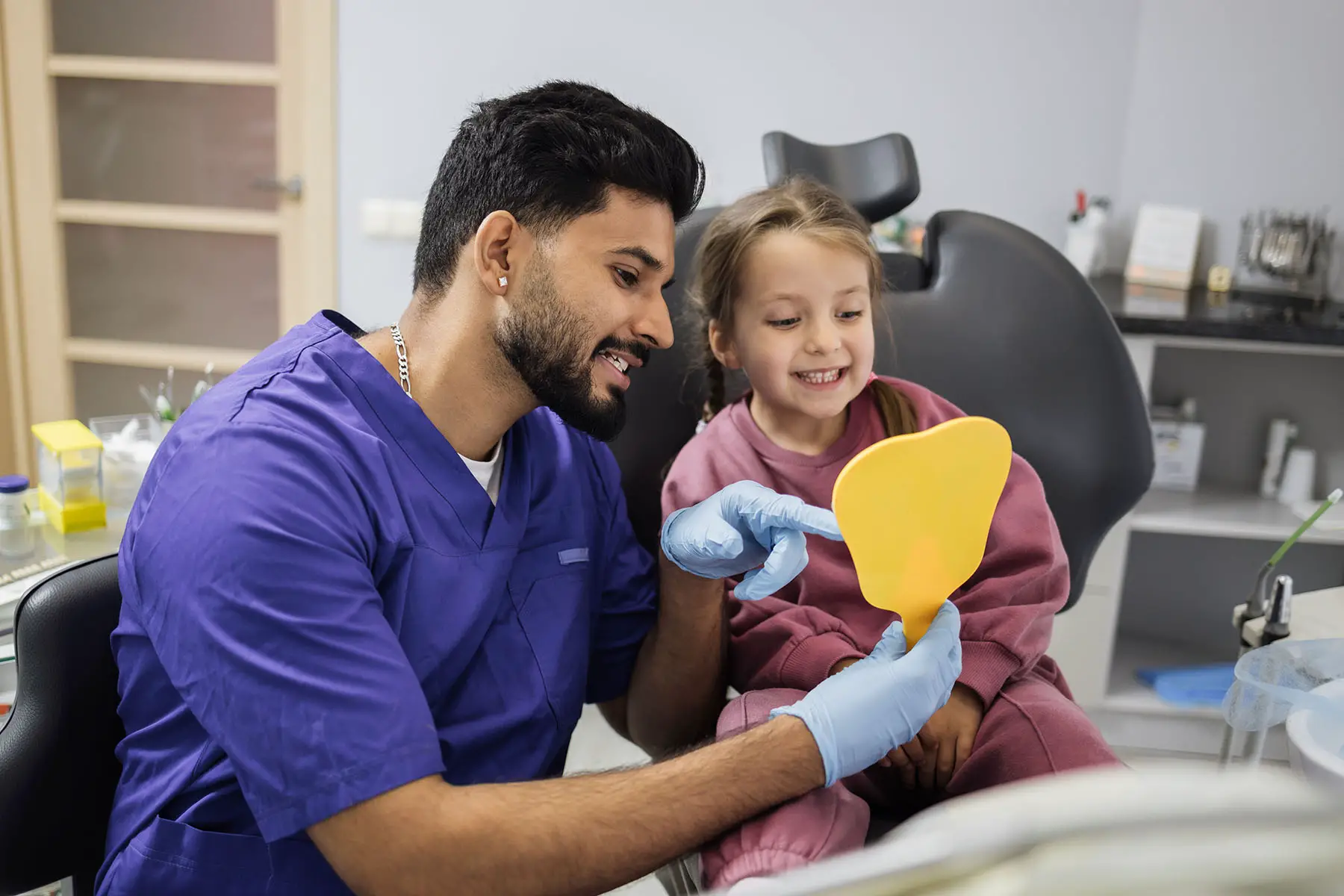
Regular check-ups usually take place once a year, though some dentists will insist you come every six months. They may delegate certain tasks to dental assistants, and, when necessary, refer you to a specialist.
Doctors and specialists
In 2020, there were over 26,200 doctors and over 56,100 nurses working in the UAE. Of the doctors, over 17,000 (65.2%) were working in the private sector. As such, finding a doctor or specialist is relatively simple.
You can contact the PHCSS or hospital to schedule an appointment with your preferred doctor. PHCSS often deal with ‘routine’ medical problems, such as family medicine, standard gynecological and pediatric examinations, cancer screening, and other primary care. They can also refer you to a specialist. However, with private health insurance, you can skip the family doctor and contact the health center or hospital directly.
Physical therapy in the UAE
There are relatively few good physiotherapists (اخصائي العلاج الطبيعي, akhisaayiy aleilaj altabieii) in the UAE. You can find trusted professionals at a hospital or rehabilitation center.
Specialized healthcare
Children’s healthcare in the UAE
There’s a big focus on children’s healthcare in the UAE, starting with postnatal tests for genetic diseases, heart problems, and hearing disorders. The government has also mandated a vaccination schedule with 14 different vaccines.
For curative treatment, you can go to any PHCSS or one of the many children’s hospitals (مستشفى الأطفال, mustashfaa al’atfal) located across the country.
To combat childhood obesity, the government launched a 2021 Healthy Children initiative in 2015. Little is known about the current (2023) status of this project. However, one thing to come out of this campaign was regulation on healthy nutrition. All schools in the UAE must follow the guidelines to ensure their pupils have access to healthy food.
Mental healthcare in the UAE
In 2029, around 24,000 cases of mental health disorders were reported in the UAE, with depression, anxiety, and substance abuse among the most common. Often, people don’t seek help due to the shame that is traditionally associated with mental illness in Arab culture.
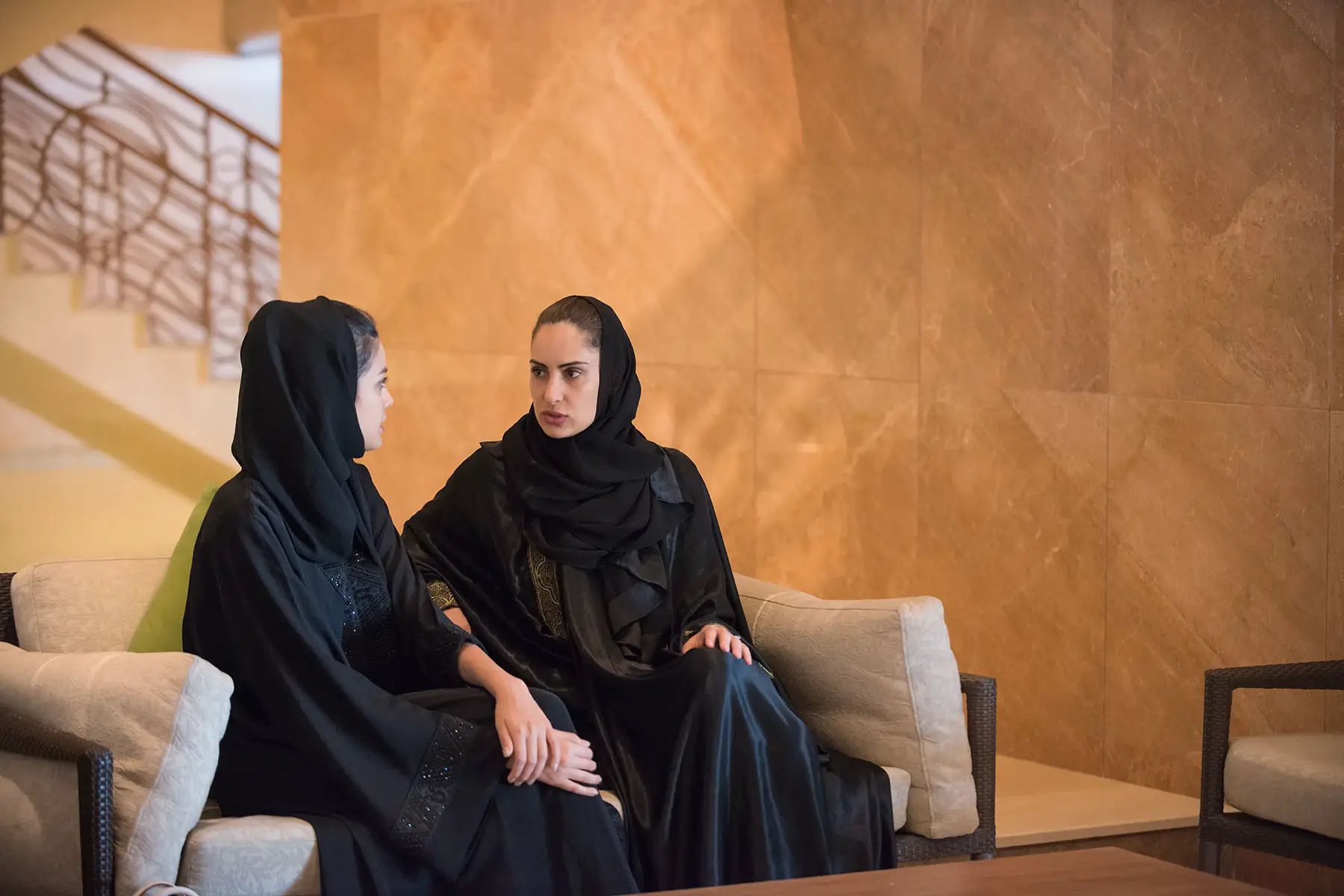
To reduce the stigma, mental healthcare (الرعاية الصحية النفسية, alrieayat alsihiyat alnafsia) has become one of the primary focus points in recent years. Since 2019, MoHaP has launched numerous campaigns to promote the importance of mental health, including lectures, conferences, and scholarships.
In 2021, a mental health draft law was passed that aims to ensure fair and respectful treatment for disordered patients. Two years later, in 2023, mental healthcare was included in the coverage of public health insurance and budget was allocated to build care centers in various regions of the country.
If you have any mental health issues, you can schedule an appointment with an EHS center or call the Emirates Foundation helpline 8004673. If you are an Abu Dhabi resident, you can also contact their mental health hotline at 8001717.
Sexual and reproductive healthcare
Sex outside of marriage is strictly forbidden. As such, contraception (منع الحمل, mane alhaml) is also relatively hard to come by:
- Condoms (واق ذكري, waq dhikari) are not widely available
- You can only buy the birth control pill (حبوب منع الحمل, hubub mane alhaml) with a prescription. Note that if you are unmarried, you can use the pill to help alleviate conditions such as heavy periods, hormonal disorders, or severe acne.
- Intrauterine devices (IUD – اللولب الرحمي, allawlab alrahmiu – اللولب ) are only available through private healthcare centers
- The morning-after pill (صباح اليوم بعد حبوب منع الحمل, sabah alyawm baed hubub mane alhaml) is banned in the UAE
- Likewise, abortion is illegal unless the woman’s life is in danger, or there is evidence that the child will be born with fatal deformities and will not survive.
Since 2019, medical assistance for reproduction can only be performed in certain clinics. In other words, if you are experiencing fertility problems, you can contact your local PHCSS for treatment (علاج العقم, eilaj aleaqm), such as IVF (علاج أطفال الأنابيب, eilaj ‘atfal al’anabib). Again, this is only available to married couples.
Homosexuality is illegal in the UAE and the LGBTQ+ community is mainly driven underground. Although some areas turn a blind eye, openly gay people still face persecution.
Women’s healthcare in the UAE
The overall standard of women’s healthcare in the UAE is pretty high, although women in rural areas will likely have to travel further to have access.
Although cervical cancer (سرطان عنق الرحم, saratan eunuq alrahim) is the sixth most common type of cancer among women in the UAE, the government is doing a lot to raise awareness and prevent the disease. For example, the HPV vaccine is included in the national vaccination program. Women aged 25-29 are recommended to do cervical cancer checks every three years, and every five years when aged 30-65.
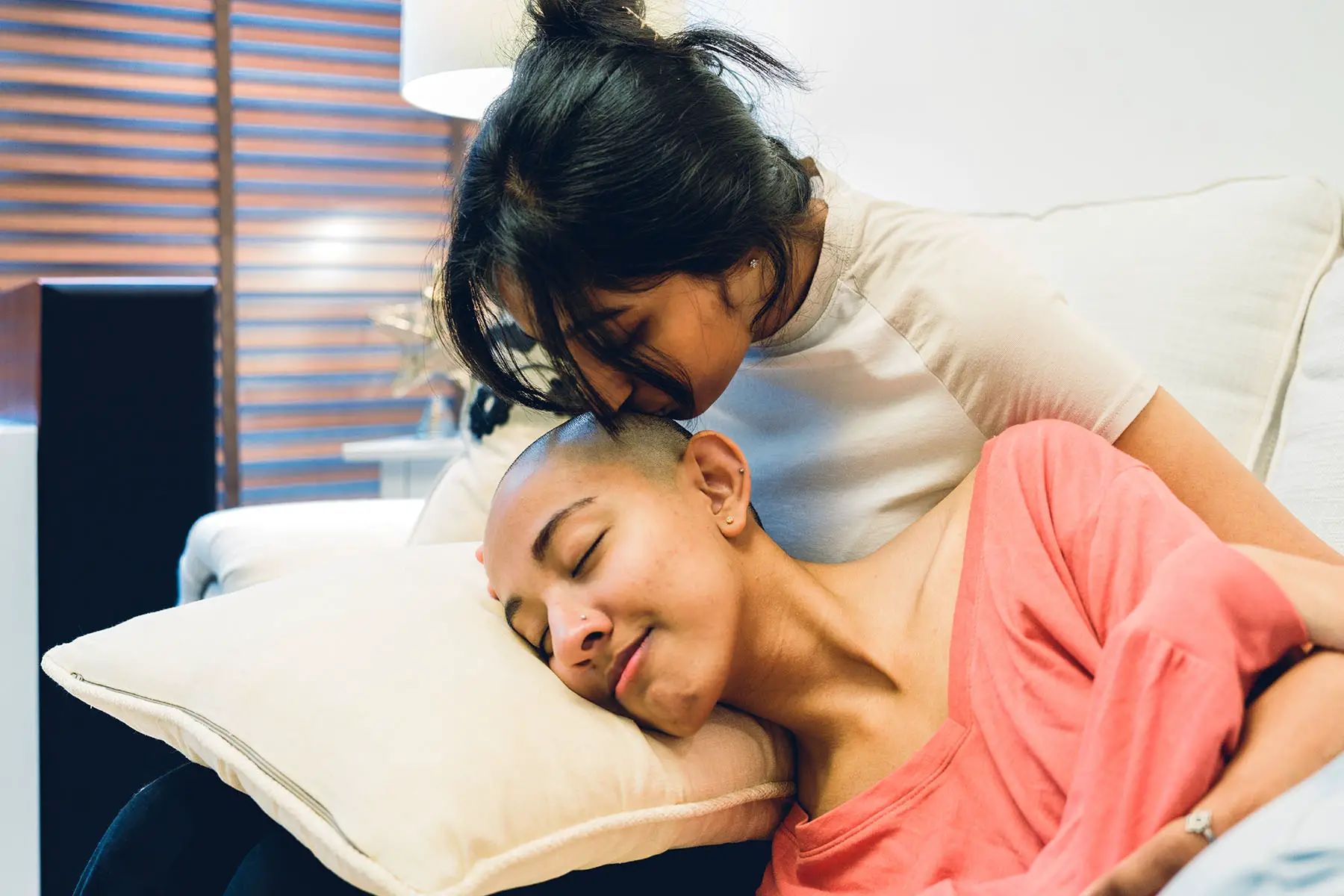
In 2022, the MoHaP also launched a breast cancer awareness campaign to encourage women to get screened. Currently, the country only has five locations to conduct screening tests.
Cancer screenings, pregnancies, and maternity care are arranged through the local family doctor. Either they will perform the exams themselves or refer you to a specialist. As said before, abortion is only permitted if the woman’s life is in danger, or there is evidence that the child will be born with fatal deformities and will not survive.
In 2019, the UAE passed a decree to protect people from domestic violence (العنف المنزلي, aleunf almanziliu). At that same time, it launched the Family Protection Policy to raise awareness and strengthen social ties within the community. The policy aims to protect women, children, the elderly, and people living with a disability.
If you experience domestic abuse or sexual violence (عنف جنسي, eunf jinsiun), you can reach out to:
- Abu Dhabi – Ewa’a Shelter for Women and Children
- Ajman – Himaya Foundation for Woman and Child
- Dubai – Dubai Foundation for Women and Children
- Ras Al Khaimah – Aman Shelter for Women and Children
- Sharjah – Women Protection Shelter
COVID-19 in the UAE
All COVID-19 restrictions have been lifted by 2023. Self-tests and self-isolation are no longer required. You can still receive a (booster) vaccination by booking an appointment at your local PHCSS.
According to some frontline doctors, roughly 15% of people suffer from the effects of long-COVID or post-COVID. If you experience any of the symptoms, you should contact your family doctor to get a referral. Alternatively, you can reach out to a Post-COVID Care Center (PCCC).
What to do in an emergency
If you are in a life-threatening emergency, you can call the emergency number 998. This number is free of charge and the operator speaks various languages, including Arabic and English.
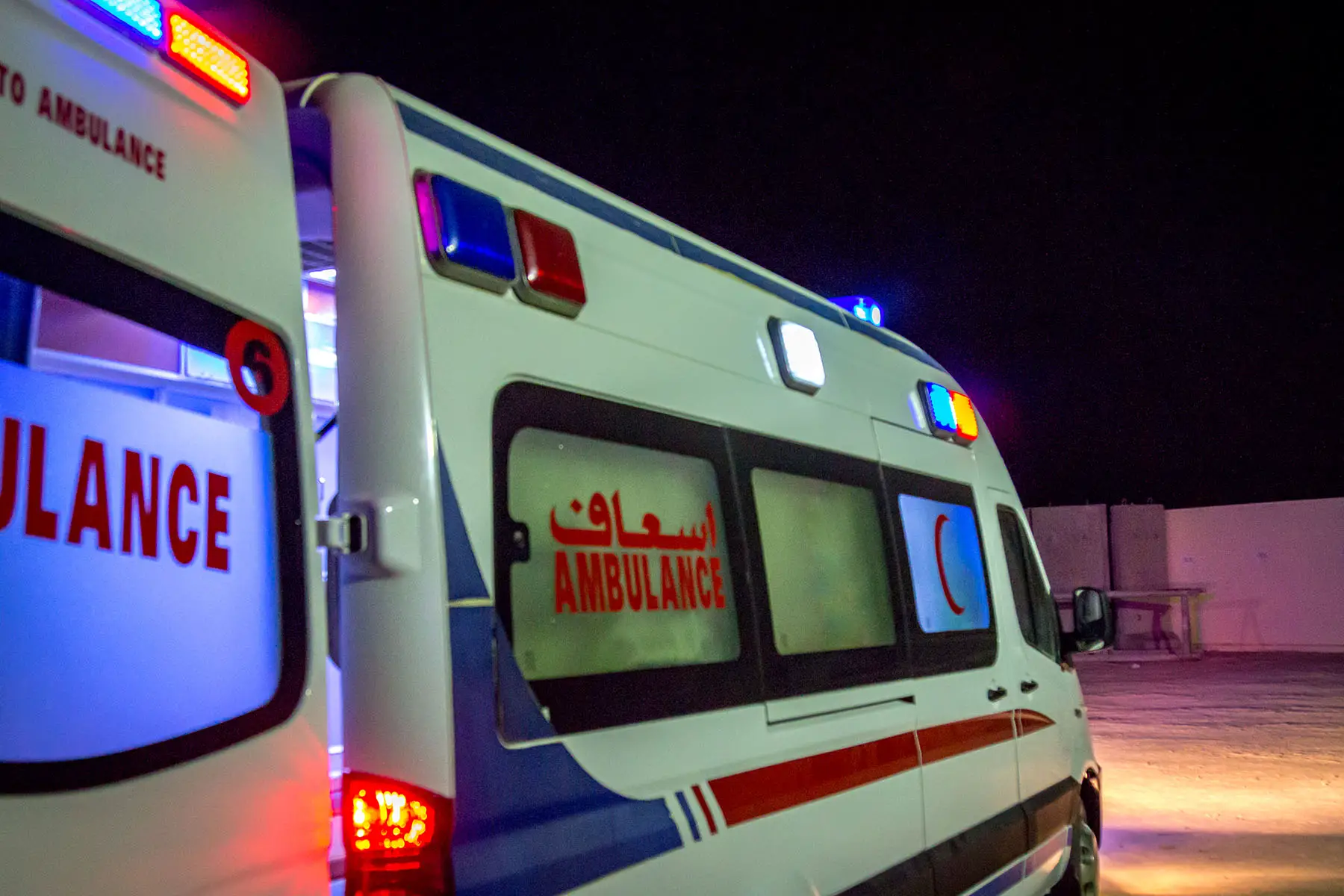
Other emergency numbers include:
| Emergency service | Number |
| Police | 999 |
| Fire Department | 997 |
| Coastguard | 996 |
| Electricity failure | 991 |
| Water failure | 922 |
| Emirates Red Crescent | 800RED-800733 |
| Emirates Foundation (mental health) helpline | 8004673 |
How to make a healthcare complaint
If you want to report an issue or file a medical complaint, you should contact the health center first. After that, you can submit an official report through:
- EHS – for issues with public hospitals. The process can take up to 12 weeks.
- MoHaP – for issues with private facilities in the northern emirates (Ajman, Fujairah, Ras Al Khaimah, Sharjah, Umm Al Quwain). The process can take up to 45 days.
- Dubai Health Authority – for issues with a health center in Dubai. The process takes between one to six months.
- Department of Health – for issues with a medical clinic or center in Abu Dhabi. The process will be solved in “a timely manner”, but can take months.
Depending on your situation, you will be asked to submit proof and the issue will be investigated. There will then be a hearing to discuss the outcome of your complaint.
Useful resources
- EHS – official government portal with information and ways to contact public healthcare professionals
- DHA – official government website of the healthcare authority in Dubai
- DoH – official government website of the healthcare authority in Abu Dhabi
- MoHaP – official government website of the ministry responsible for the national healthcare regulations in the UAE
